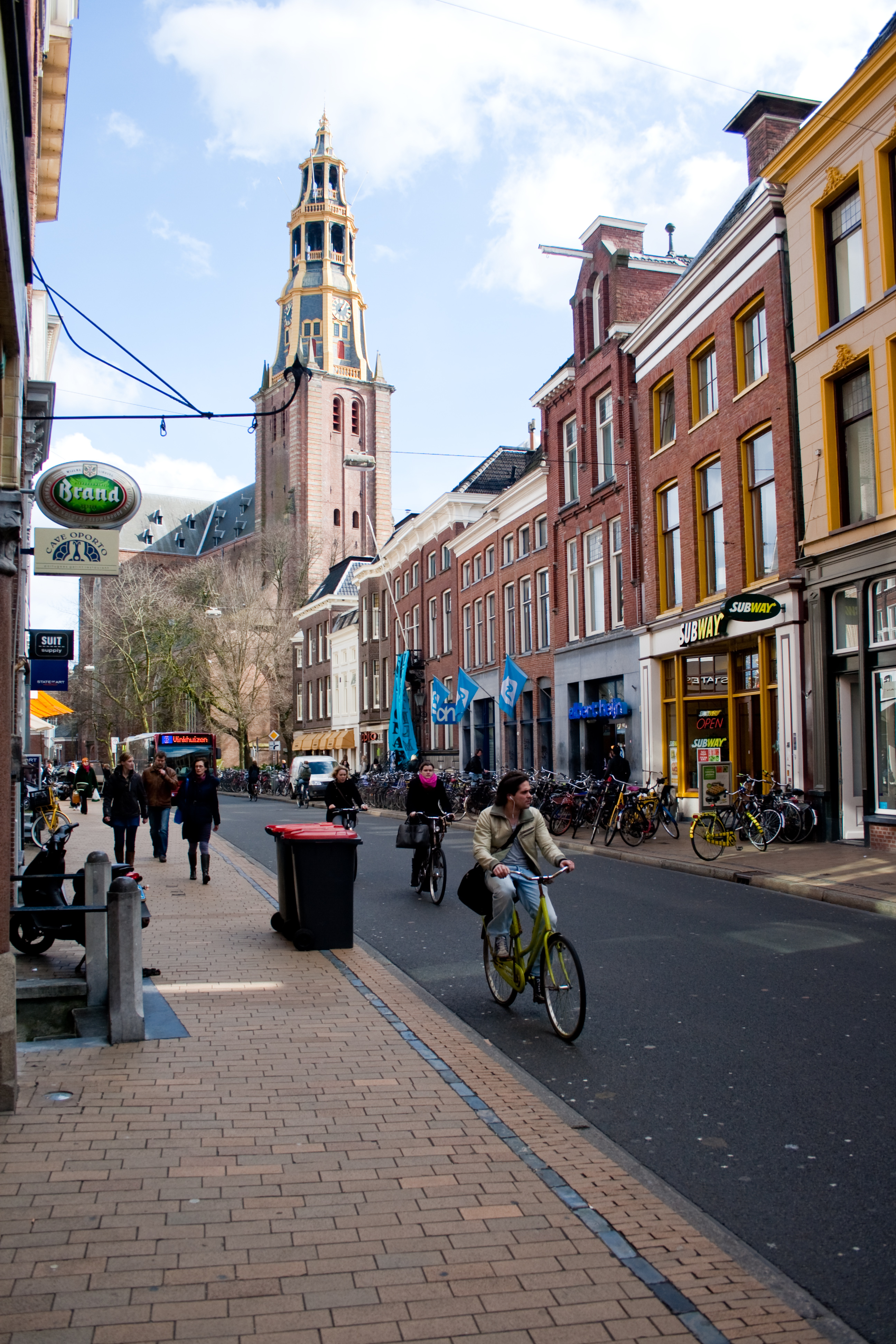Recently, I had the opportunity to travel to the Netherlands and visit many different areas within the country. I landed in Amsterdam and took a train roughly 200 kilometers (125 miles) to the city of Groningen in the northern part of the country. The trip took about as long as it takes to get from one end Boston to the other via the green line (sadly I’m only half joking here). It doesn’t take long to notice the public transportation system in the small European country is as efficient any.
Stepping out in Groningen, we made our way to catch a bus to the apartment where we would stay for the next few days. Finally outside of airports and train stations, I was able to take in Holland for the first time. Before I could enjoy it all, a bike flew by a few inches in front of me, bell ringing and some Dutch shouted in my direction. I was standing right in the middle of a bike lane that had more “traffic” than the road running parallel to it. I quickly came to realize why the Netherlands is the bike capital of the world. Bikes are locked up all over the place. There are even special garages to lock your bike up for an extended period of time. Thousands of bikes are housed in these garages at train stations every day.

Bike Garage outside of Central Station, Groningen, Netherlands
When cycling in Holland, almost every road has a separate bike lane, usually two lanes, running along side it. In Boston and other U.S. cities, we are used to the little bike lanes painted on the side of the road, with car traffic speeding by only inches away. Not here. Almost everyone owns a bike and can safely traverse the city at their own pace without worrying about car traffic. The bike lanes even have their own traffic lights. It gets a bit busy at major intersections; with traffic lights for car, bike, and pedestrian traffic, but they are all well labeled, making it easy to safely navigate even the busiest of areas.
There is no need to own one of the $1,600 road bikes that cruise many U.S. roads, either. In Holland, a majority of bikes are fairly basic – one speed, and pedal breaks – making this mode of transportation affordable for everyone. This also makes it a bit more bearable to find your bike stolen; a couple hundred Euros lost is much better than over 1,000. Still, bike theft is becoming more of a problem, and police are turning to arresting those who purchase stolen bikes in an attempt to cripple the black market. So, if you’re looking to get a bike, make sure its from a legitimate bike shop (they’re as frequent as Dunkin Donuts are in New England). Of course, nobody wants to lose their bike no matter how cheap it is, so a strong cable bike lock is necessity, along with a neat fixed lock on the rear tire that owners have to put a key into, and leave in to unlock the back wheel. Usually this key is attached to all your other keys, so you’ll never ride your bike away from home without your keys again!
I had the pleasure of enjoying some cycling of my own after settling in. We took the bikes out to get dinner on the other side of the city. It took us maybe ten minutes, with no problems. Its quite the rush cycling on your own road, or safely with traffic. In Holland, for the most part cars will stay well behind you until its completely safe to pass. Bikes are just a part of traffic, something that people have a hard time accepting in the United States it seems. Both the individual and collective benefits of this attitude are simple.

Bike and car traffic at an intersection, Groningen, Netherlands
Individually, transportation costs are incredibly low. The upfront cost for the bike depends on what you want of course. You can buy an expensive new bike, or go used for as little as a hundred Euros. Along with locks and repairs every once and while, that’s all it will cost you. Cycling being a major mode of transportation also benefits the community as whole. The emission of greenhouse gases is significantly reduced because there are many fewer cars on the road. Also, since its not always great weather for biking, the trend makes it even more important for the city to have an efficient public transportation system for those who rely on cycling but cant because of the weather, or any other reason for that matter.
While in Boston it is unlikely a bike lane can be added to every street, it is still important to continue to integrate biking onto our city streets. There is already good work being done with programs such as the growing bike-share program. The more work put into bike safety like that in the Netherlands, the more people will ditch their cars for a bike. It is truly a site to see more bikes at an intersection than cars. Cycling, a staple to Dutch society, is something that cities and countries around the world can learn from as part of bigger plans to curb carbon emissions, transportation costs, and increase energy efficiency.

Cycling through the bike garage, Groningen, Netherlands

